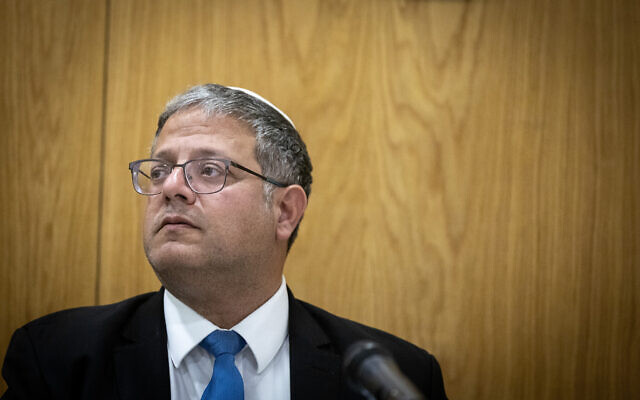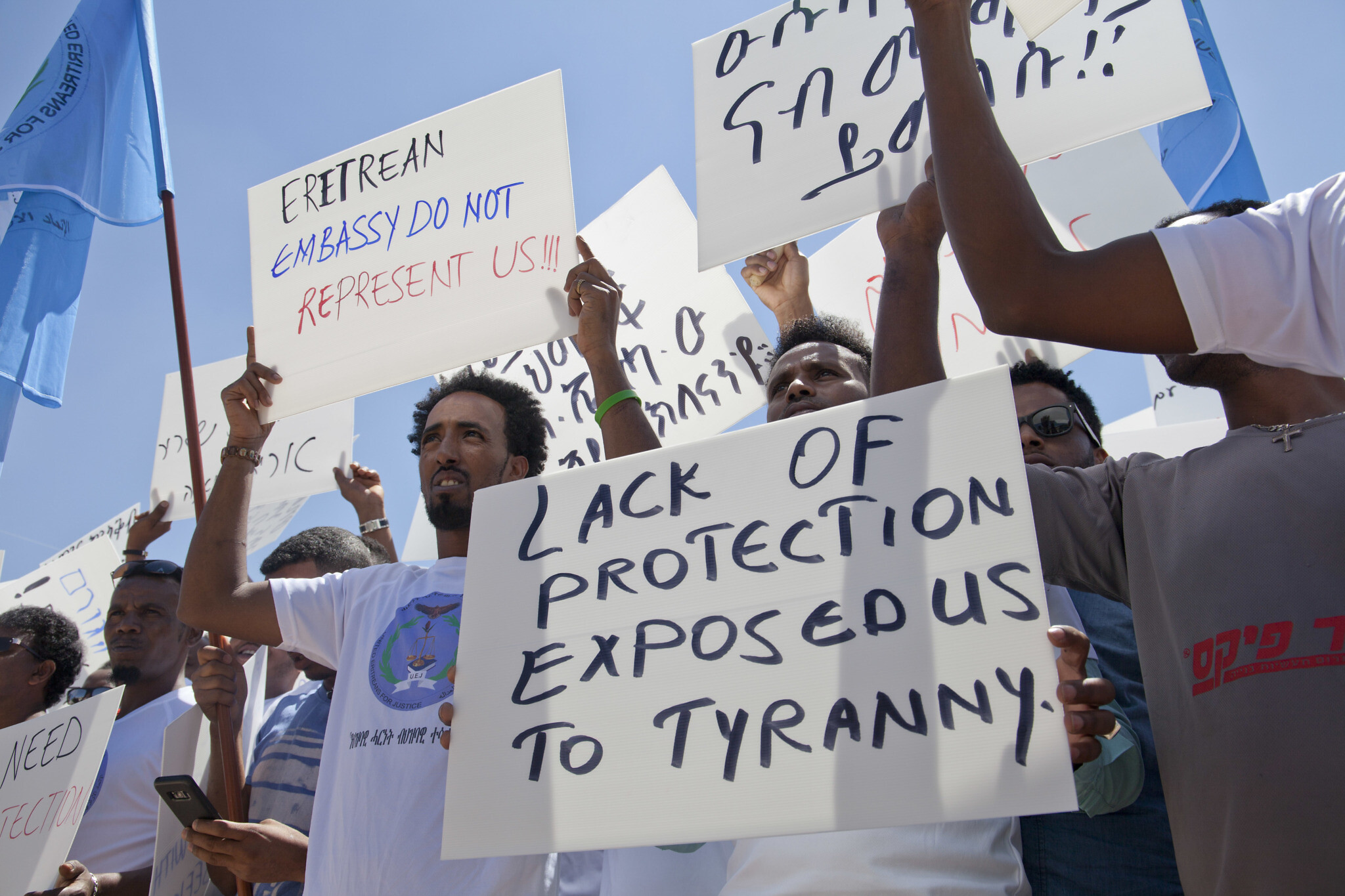Far-right National Security Minister Itamar Ben Gvir called for the deportation of Eritrean asylum seekers on Saturday evening, following a massive street brawl in Tel Aviv between pro-regime and anti-regime migrants in which two men were killed and five others injured.
In a statement, the minister’s office said that following a conversation with senior police officials, the National Security Ministry and Israel Police have agreed to demand that the state prosecutor, attorney general and justice and interior ministries act “to deport the Eritreans, following the request submitted a year ago and the discussion held with the prime minister.”
“In addition, it was agreed that the national security minister would raise the matter before Prime Minister Netanyahu and demand his intervention in the matter,” Ben Gvir’s statement continued — adding that the police had increased its presence in Tel Aviv “to keep the peace and ensure the safety of the citizenry.”
“We note that in the past, the Interior Ministry and the Prosecutor’s Office stated that they would assist in the matter, but after that, they did not advance the process,” Ben Gvir’s office added.

Otzma Yehudit party leader and National Security Minister Itamar Ben Gvir leads a faction meeting at the Knesset, in Jerusalem, on June 3, 2024. (Chaim Goldberg/Flash90)
However, unnamed Interior Ministry sources cited by the Ynet news site countered that Interior Minister Moshe Arbel had asked to meet the Tel Aviv police chief over a month ago, but Ben Gvir did not approve the meeting.
Get The Times of Israel’s Daily Edition
by email and never miss our top stories
By signing up, you agree to the terms
Police said the pro-regime and anti-regime gangs hurled stones and attacked each other with sticks and spikes during Saturday morning’s melee. Officers arrived on the scene to break up the fight and in some cases fired warning shots in the air.
Medics said paramedics who arrived at the location of the fight near the Central Bus Station found two men in their 30s badly beaten, unconscious and not breathing. Resuscitation was unsuccessful and their deaths were pronounced at the scene.
Five others injured in the fight — two seriously, two moderately and one lightly — were evacuated to hospitals for medical treatment.
תל-אביב שבת בבוקר.
מספר מתפללים שייצאו מהכנסיה האריתראית בתל אביב כתוצאה מדקירות וריסוס בגז. pic.twitter.com/qCcjJtfp20
— ????or keren (@Wq0oQJmUSfZunt5) August 24, 2024
Also on Saturday evening, lawmaker Yitzhak Wasserlauf, a member of Ben Gvir’s ultranationalist Otzma Yehudit party, offered NIS 5 million ($1.4 million) from his own Negev, Galilee and National Resilience Ministry’s budget to a government unit which assists in the voluntary repatriation of foreign nationals.
In a statement, Wasserlauf demanded that the cabinet immediately debate a framework for transferring additional funds to the Population and Immigration Authority’s Assisted Voluntary Return Department and “appealed to all government ministers to allocate resources for this purpose.”
Clashes between the two groups of Eritrean asylum seekers are not unusual. Last month, one person was killed and another was seriously injured in a similar brawl in Tel Aviv while another man was stabbed to death in a similar incident in May. Last September, at least 170 people were hurt — including police officers — in major clashes in the city.
A portion of the Eritreans living in Israel are asylum seekers who fled near-lifetime military conscription, among other human rights abuses, at the hands of Eritrea’s autocratic regime. Others are regime supporters who do not claim to fear the same political retribution if repatriated to Eritrea, and are considered by some to be economic migrants.
Various Israeli governments have taken a series of measures — some of which were blocked by the courts — to encourage the migrants, many of whom are seeking asylum due to war and oppression in their home country, to leave. There are roughly 20,000 Eritreans who are living in Israel, after entering illegally before the completion of a barrier along the Egyptian border in 2012.

The scene of a deadly brawl between Eritreans in Tel Aviv, August 24, 2024. (Israel Police)
Last September, Prime Minister Benjamin Netanyahu’s cabinet approved a plan formulated by Wasserlauf and Minister for the Advancement of Women May Golan (Likud) earmarking NIS 20 million ($5.5 million) to incentivize African migrants and asylum seekers to leave Israel.
The decision also stated that an inter-ministerial team, headed by ministry directors general, would be set up to “prevent infiltrators from harming citizens’ quality of life” and to further “remove infiltrators” from Israeli neighborhoods.
The Israeli government generally refers to African migrants and asylum seekers as “infiltrators,” due to their having entered the country illegally. Critics of the policy point to the fact that Israel largely refuses to evaluate refugee or asylum seeker status requests for the tens of thousands of African migrants currently residing in the country.
Following last September’s riot, Netanyahu said that he would only look to deport pro-regime migrants who took part in the violence.
The United Nations quickly poured cold water over Netanyahu’s idea, saying that expelling Eritreans en masse would be unlawful.

In this Monday, June 25, 2018, file photo, Eritrean asylum seekers hold a rally in front of the Foreign Ministry in Jerusalem. (AP/Caron Creighton)
Netanyahu brokered a deal with the UN in 2018 to resettle half of the Eritrean population in third countries in exchange for granting status to the other half, but then quickly called off the arrangement, caving to political pressure against absorption within Israel. While the flow has tapered off due to the 2012 construction of a physical barrier along the border with Egypt, many remain in the country today, often in difficult conditions.
As an alternative to forcible deportation, the Prime Minister’s Office said last year that the NIS 20 million ($5.5 million) was geared toward “encouraging the voluntary departure of infiltrators.”
Carrie Keller-Lynn contributed to this report.
pdcc